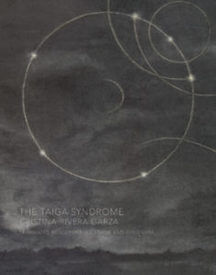I usually like to welcome the fall by buying a fresh notebook and a pack of pens (guess I haven’t left my school days behind), but this year, that little ritual was replaced with reading Patrick Flores-Scott’s new novel. American Road Trip is as multifaceted as its protagonist, Mexican-American teen Teodoro (known as “T”), wrapping a moving multigenerational story into a endearing coming-of-age tale. As the youngest member of the Avila family, T has flown under the radar, both at home and in school. That all changes when he runs into his childhood friend, Wendy Martinez. But their chance meeting awakens more than just a crush in T; it helps him realize his own potential. Growing pains are inevitable, though, especially once his older brother, Manny, the former golden boy of Sea-Tac, returns from an extended tour of Iraq with PTSD. Many bildungsroman stories see the lead character moving away from home—a branch stretching, straining away from the family tree. But as he maps out T’s future, Flores-Scott also traces his roots back a generation or two, finding both devastation and strength there. Flores-Scott’s easygoing prose takes us through American Road Trip’s more fraught territory in stride, so we can marvel at T’s growth as well as the occasional setback. [Danette Chavez]
Katrina Carrasco’s The Best Bad Things, which comes out in November, is a gender- and genre-bending tale: one part Dashiell Hammett story, one part feminist historical drama, with shades of Agent Carter for those who are missing the defunct show. Alma Rosales is the hard-boiled detective on the trail of some stolen opium, but it’s her male alter ego, Jack Camp, who’s often at the center of all the action. It’s been a couple weeks since I snapped up the advance review copy, but, at 400 pages, the length of Carrasco’s stimulating and impressive debut novel isn’t what’s keeping me from finishing it. (It’s not even the 500-plus scripted TV series that are my official purview.) It’s Carrasco’s prose, which is so evocative it ignites all the senses, even as the thunderous pacing leaves you scrambling to pick up on all the clues. The action scenes will fill your nose with the acrid smell of gunpowder, and leave your tongue with the metallic taste of blood. Carrasco gives Alma all kinds of appetites—for sex, mischief, power, and more—then feeds them with one lusty chapter after another. Society may push Alma into a liminal space, but she is absolutely living it up. [Danette Chavez]
“It is difficult to know for sure when a case begins, at what moment one accepts an investigation.” This is how the unnamed narrator of Cristina Rivera Garza’s The Taiga Syndrome takes on her new assignment, acknowledging the fogginess surrounding even the acceptance of the job, let alone the mysterious details revealed along the way. The detective is hired by a man hoping to find his second ex-wife, who he believes has disappeared with another man in a remote region of the world—the Taiga—thought to cause suicidal thoughts and madness. The ex-wife, who may or may not want to be found, has left behind her, like a trail of breadcrumbs, a series of suggestive telegrams. “What are we letting in when we say goodbye,” one reads. This novella from micro-press Dorothy (translated by Suzanne Jill Levine and Aviva Kana) is a gray mist of a tale. In the Taiga, images briefly take shape—a lone wolf, a feral child, inexplicable tiny creatures—before disappearing, leaving behind uneasy impressions both in the narrator and the reader. In plain, lyrical language, Garza drapes a poetic hush over the narrative, creating an unsettling fable-like world. It’s a mystery that creeps, with careful, steady steps. [Laura Adamczyk]


 Keep scrolling for more great stories.
Keep scrolling for more great stories.